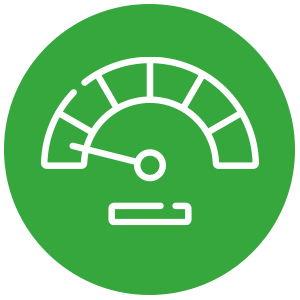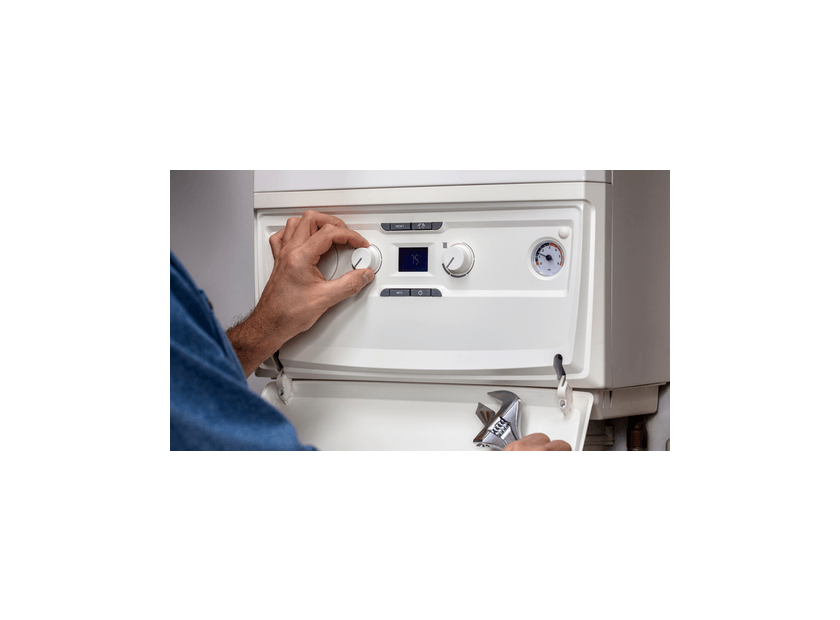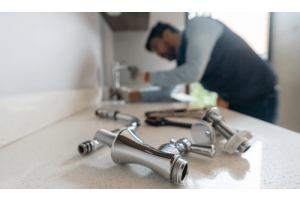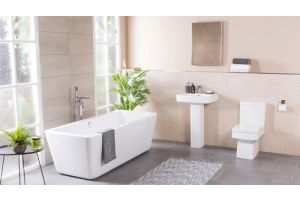Boiler & Central Heating FAQs
When it comes to keeping your home warm and comfortable, a reliable boiler and central heating system are essential.
That's why we've put together this FAQ guide, to provide you with the knowledge you need to make informed decisions about your boiler and central heating system.
So, whether you're looking to upgrade your current boiler, or simply want to know more about how your central heating system works, we're here to help. Let's get started!
What is a boiler, and how does it work?
A boiler is a vital component of a central heating system. It is responsible for heating water and distributing it throughout your home via pipes and radiators.
Most boilers work by burning fuel (usually natural gas, oil, or propane) to heat a heat exchanger. The heat exchanger then transfers the heat to the water, which is pumped through the pipes and radiators in your home. The radiators emit heat, warming up your rooms.
Boilers are available in different types, including combi boilers, system boilers, and conventional boilers. Each type has its own advantages and disadvantages, and the choice will depend on your specific needs, preferences, and budget.
What types of boilers are available, and which one is right for my home?
There are three main types of gas boilers available for home heating systems: combi boilers, system boilers, and conventional boilers.
Each type has its own advantages and disadvantages, and the best one for your home will depend on various factors, such as the size of your property, your hot water usage, and your budget.
Here's a brief overview of each type:

Combi boilers
A combination boiler, or "combi", combines the functions of a central heating boiler and a hot water heater into a single unit. They are compact and space-saving, making them ideal for smaller homes and flats. They provide hot water on demand, which means you don't need a separate hot water cylinder, but they may not be suitable for homes with high hot water demand.

System boilers
A system boiler is a closed system that only requires a cylinder for storing hot water. They are suitable for homes with multiple bathrooms and high hot water demand. They offer good water pressure and are easy to install, but they may not be as efficient as combi boilers.

Conventional ‘heat only’ boilers
A conventional 'heat only' boiler, also known as a regular or traditional boiler, requires a hot water cylinder and a cold water tank. They are suitable for homes with high hot water demand and multiple bathrooms. They are reliable and offer good water pressure, but they take up more space than combi or system boilers.
When choosing a boiler for your home, you should consider factors such as the size of your property, your hot water usage, and your budget. Our team of experts can help you choose the right boiler for your needs.
How can I tell if my boiler needs replacing?
There are several signs that may indicate that your boiler needs to be replaced.
Here are some common indicators:

Age - A boiler's lifespan typically ranges from 10 to 15 years. If your boiler is approaching or exceeding this age, it may be time to consider replacing it.

Increased Energy Bills - If you notice a significant increase in your energy bills without any change in your usage patterns, it could be a sign that your boiler is becoming less efficient and needs to be replaced.

Frequent Breakdowns - If your boiler is breaking down frequently and requires constant repairs, it may be more cost-effective to replace it with a newer, more reliable model.

Strange Noises - Unusual noises coming from your boiler, such as banging or clunking sounds, could be a sign that there is a problem with the internal components and that the boiler needs to be replaced.

Leaks - If you notice water around your boiler or on your pipes, it could be a sign that there is a leak, which could cause damage to your home and potentially be dangerous.

Yellow Flame - A yellow flame instead of a blue one could indicate that your boiler is producing carbon monoxide, which is a serious health hazard. You should immediately turn off the boiler and call a professional for help.
If you're experiencing any of these issues, it's important to contact a qualified heating engineer or boiler specialist to assess your boiler and determine whether it needs to be replaced. Our team of experts can provide professional advice and guidance to help you make the right decision for your home.
What is the lifespan of a typical boiler, and when should I consider replacing it?
The typical lifespan of a boiler is around 10-15 years, although this can vary depending on the make and model of the boiler, as well as how well it has been maintained. As a boiler ages, it may become less efficient and more prone to breakdowns, which can result in higher energy bills and costly repairs.
If your boiler is approaching or exceeding its expected lifespan, or if you're experiencing any of the following issues in the previous point, it may be time to consider replacing it.
Replacing your boiler with a new, more efficient model can help you save money on energy bills, reduce the likelihood of breakdowns and repairs, and improve the overall safety and comfort of your home.
How often should I service my boiler, and what is involved in a service?
To ensure that your boiler is working safely and efficiently, it's recommended that you have it serviced annually by a qualified heating engineer or boiler specialist. Regular boiler servicing can help to identify any potential issues early on, which can prevent costly breakdowns and repairs.
During a boiler service, a heating engineer or boiler specialist will typically carry out a number of checks and tests, including:

-
Checking for any leaks or signs of damage
-
Testing the flue to ensure it's not blocked
-
Checking the pressure, and adjusting it if necessary
-
Cleaning and inspecting the burner
-
Inspecting and testing the safety controls
-
Checking and testing the ignition system
-
Inspecting the heat exchanger and other key components
-
Ensuring that the boiler is working correctly and efficiently
After the service is complete, the engineer will provide you with a report detailing any issues that were found and any recommendations for repairs or replacements. They may also provide you with advice on how to maintain your boiler and keep it working efficiently.
What are some signs that my central heating system may need repairs?
Central heating systems are complex, and there are many different components that can develop faults or fail over time.
Here are some common signs that your central heating system may need repairs:

No Heat - If your radiators or hot water supply aren't producing heat, it could be a sign that there is a problem with your boiler or heating controls.

Uneven Heat Distribution - If some rooms in your home are much colder than others, it could be a sign that there is an issue with the balance or distribution of heat from your central heating system.

Strange Noises - Unusual noises coming from your central heating system, such as banging, clunking, or gurgling sounds, could indicate that there is a problem with the internal components and that repairs are needed.

Leaks - If you notice water around your boiler or on your pipes, it could be a sign that there is a leak, which could cause damage to your home and potentially be dangerous.

High Energy Bills - If you notice a sudden increase in your energy bills without any change in your usage patterns, it could be a sign that your central heating system is becoming less efficient and needs repairs.

Low Pressure - If the pressure gauge on your boiler is consistently low, it could indicate that there is a leak or a problem with the pressure relief valve.

Pilot Light Issues - If the pilot light on your boiler keeps going out or won't stay lit, it could be a sign that there is a problem with the ignition system or other components.
How can I improve the energy efficiency of my heating system?
There are several ways to improve the energy efficiency of your heating system and reduce your energy bills.
Here are some tips:

Upgrade your boiler
Replacing an old, inefficient boiler with a new, energy-efficient model can make a significant difference in your energy bills. Look for boilers with a high energy efficiency rating (usually labeled with an "A" rating) and consider options like condensing boilers, which are designed to recover heat from exhaust gases.

Install a programmable or Smart thermostat
A programmable thermostat allows you to set different temperatures for different times of day, so you can avoid wasting energy heating an empty home. You can also use a smart thermostat to control your heating remotely, so you can adjust your heating schedule from your phone or tablet.

Improve insulation
Make sure your home is well insulated to prevent heat loss. This includes insulation in your walls, roof, and floors, as well as around pipes and water tanks. You can also consider double-glazing your windows or adding draught-proofing to doors and windows.

Upgrade your radiators
Installing modern, high-efficiency radiators can help your heating system work more efficiently, as they require less energy to heat up and can retain heat for longer periods.

Service your heating system
Regular maintenance of your heating system can help keep it running efficiently and prevent breakdowns. Make sure to have your boiler serviced annually by a qualified heating engineer, and bleed your radiators regularly to remove any trapped air.
By implementing these energy-saving measures, you can improve the efficiency of your heating system and save money on your energy bills.
What is a smart thermostat, and how can it benefit my central heating system?
A smart thermostat is a device that connects to your central heating system and allows you to control your heating remotely using a smartphone or other internet-connected device. It uses advanced technology to learn your heating patterns and preferences, so it can automatically adjust the temperature to suit your needs.
Here are some benefits of using a smart thermostat:

Energy savings
Smart thermostats can help you save money on your energy bills by automatically adjusting the temperature when you're not at home, or when you're asleep. This means you can avoid wasting energy heating an empty home.

Increased comfort
With a smart thermostat, you can easily adjust the temperature to suit your needs, whether you're at home or away. You can also set different temperatures for different times of day, so your home is always at the right temperature.

Easy to use
Smart thermostats are user-friendly and can be controlled using a smartphone app. Some models also have voice control options, so you can adjust the temperature without even touching your phone.

Integration with other smart devices
Many smart thermostats can be integrated with other smart home devices, such as Amazon Echo or Google Home. This allows you to control your heating using voice commands or other smart devices.

Remote monitoring
Some smart thermostats come with additional features like remote monitoring, which allows you to track your energy usage and receive alerts if there's a problem with your heating system.
Overall, a smart thermostat can help you make your central heating system more efficient and convenient, saving you both time and money.
What should I do if my boiler breaks down or stops working?
If your boiler breaks down or stops working, it can be a stressful and inconvenient experience, especially during the colder months.
Here are some steps you can take to address the issue:

Step 1: Check for basic issues
Before calling a heating engineer, check for basic issues such as a power cut or a tripped fuse. Also, check the pilot light if you have a gas boiler, to see if it has gone out. If you are not sure how to check these, refer to your boiler manual or contact a qualified heating engineer.

Step 2: Check your boiler's warranty
If your boiler is still under warranty, check to see if the issue is covered. If it is, contact the manufacturer or the installer to arrange a repair or replacement.

Step 3: Contact a heating engineer
If your boiler is out of warranty or the issue is not covered, contact a Gas Safe registered heating engineer to diagnose and fix the problem. It's essential to use a qualified engineer to ensure your boiler is safe to use and meets the required standards.

Step 4: Consider a replacement
If your boiler is old or requires frequent repairs, it may be more cost-effective to replace it with a new one. A heating engineer can advise you on the most suitable boiler for your home and budget.

Step 5: Take preventative measures
To avoid boiler breakdowns in the future, ensure you have your boiler serviced annually by a Gas Safe registered engineer. Also, consider getting boiler cover, which can provide peace of mind and protect you against unexpected repair costs.
In summary, if your boiler breaks down or stops working, don't panic. Check for basic issues, review your warranty, and contact a qualified heating engineer if necessary.
How to Repressurise a Boiler
If your boiler's pressure has dropped, it may not be able to function effectively. Low pressure can cause your boiler to shut down, so it's important to repressurise it as soon as possible.
Here's how to repressurise a boiler in a few simple steps:

Step 1: Turn off the boiler
Before you start, make sure the boiler is switched off and allowed to cool down.

Step 2: Locate the filling loop
The filling loop is a flexible hose that connects your boiler to the mains water supply. It's usually located underneath the boiler or nearby.

Step 3: Open the valves
Open both valves on the filling loop to allow water to flow into the boiler. You should hear water flowing through the pipes.

Step 4: Watch the pressure gauge
Watch the pressure gauge on your boiler as you fill it with water. The ideal pressure is usually between 1 and 1.5 bar, but check your boiler's manual to confirm the correct pressure.

Step 5: Close the valves
Once the pressure gauge shows that the pressure has reached the desired level, close both valves on the filling loop. You should hear the water stop flowing.

Step 6: Turn on the boiler
Turn on the boiler and let it run for a few minutes to ensure the pressure remains stable.

Step 7: Check the pressure
After a few minutes, check the pressure gauge again to make sure the pressure is still within the recommended range. If it's too low or too high, repeat the process until you reach the correct pressure.







